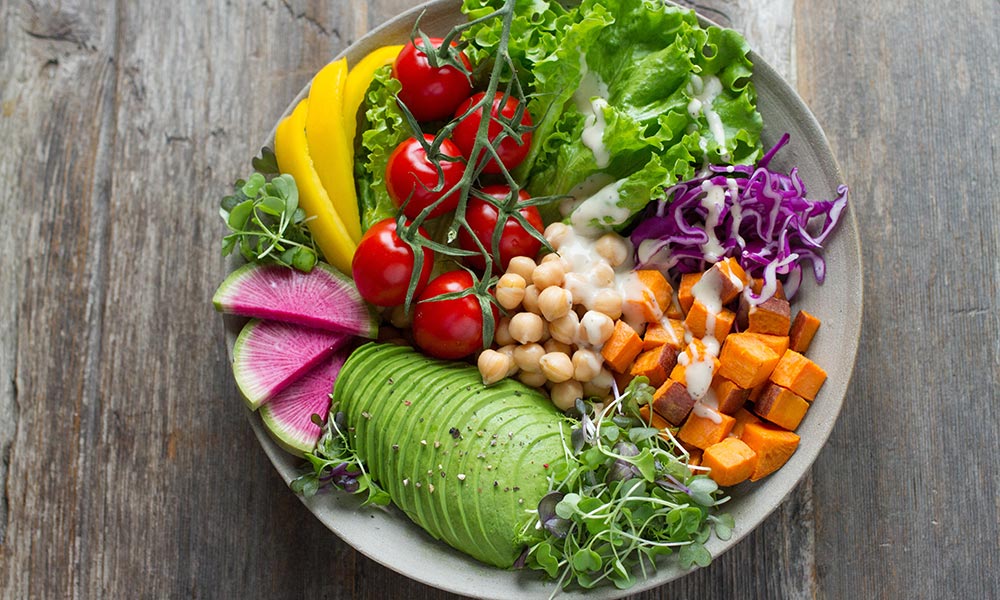
The importance of eating seasonally
These days, it’s not usual to find strawberries in store in mid-winter or ready-to-eat avocados on the shelf year-round. If you buy your fruit and vegetables based on what appeals to you rather than on what’s in season, here are five great reasons to fill your basket with seasonal produce next time you shop.
1. Packed with flavour
Unlike out-of-season fruit and vegetables which are often grown in hot houses, kept in cold storage, and transported over long distances (all of which affect their flavour), seasonal fruit and vegetables are left to ripen fully in the sun before being harvested – and you can taste the difference!
2. More nutritious
Because seasonal fruit and vegetables spend more time in the sun, they are richer in antioxidants, which is excellent news for your health and wellbeing. As Mayoclinic.org explains, “Antioxidants are substances that may protect your cells against the effects of free radicals – molecules produced when your body breaks down food or is exposed to tobacco smoke and radiation. Free radicals may play a role in heart disease, cancer and other diseases.”
3. Cost-effective
When fruit and vegetables are grown in season, they are easily available, and when supply outweighs demand, the result is fresh produce that’s cheaper – and that’s always good for your monthly budget.
4. Better for the environment
Seasonal produce is often produced locally, meaning it runs up fewer food miles, which Wikipedia explains as, “the distance food is transported from the time of its production until it reaches the consumer. Food miles are one factor used when assessing the environmental impact of food, including the impact on global warming.” What’s more, seasonal produce typically requires less chemical intervention, which is not only good for the environment, but for you, too.
5. Inspiring
Each new season is an opportunity to get creative with new ingredients. So start building up a library of seasonal recipes and have fun experimenting with the new produce on the shelf at your local supermarket.
Use this extensive list of South African seasonal fruit and vegetables from Foodandhome.co.za to help you shop and cook in line with the season.
Autumn (March–May)
Fruit: Apples, avocados, blueberries, figs, gooseberries, granadillas, grapes, mandarins, mangoes, papayas, peaches, pears, plums, pomegranates, strawberries, watermelons.
Vegetables: Aubergines, baby marrows, beans, beetroot, broccoli, brussel sprouts, butter beans, cabbage, cauliflower, celery, Hubbard squash, mange tout, leeks, mushrooms, parsnips, peppers, persimmons, radishes, spinach, sweet peppers, tomatoes.
Winter (June–August)
Fruit: Apples, avocados, dates, figs, gooseberries, granadillas, grapefruits, kiwifruits, limes, mandarins, naartjies, oranges, papayas, pears, persimmons.
Vegetables: Asparagus, beetroot, broccoli, cabbage, cauliflower, celery, kale, leeks, mushrooms, parsnips, spinach, sweet peppers.
Spring (September–November)
Fruit: Apples, apricots, avocados, bananas, berries, blueberries, cherries, dates, gooseberries, grapes, grapefruits, kiwifruits, papayas, peaches, plums, strawberries, watermelon.
Vegetables: Artichokes, asparagus, aubergines, baby marrows, beans, beetroot, broccoli, brussel sprouts, cabbage, cauliflower, celery, leeks, mange tout, marrows, mealies, mushrooms, parsnips, peppers, tomatoes, turnips, watercress.
Summer (December–February)
Fruit: Apples, apricots, bananas, blueberries, cherries, figs, granadillas, grapes, guavas, litchis, mangoes, melons, mulberries, nectarines, papayas, peaches, pears, pineapples, plums, pomegranates, raspberries, strawberries, watermelon.
Vegetables: Artichokes, asparagus, aubergines, baby corn, baby marrow, beans, beetroot, chives, mange tout, mealies, mushrooms, pattypans, peppers, radishes, red onions, rhubarb, spinach, tomatoes, watercress.
Photo by Anna Pelzer on Unsplash



